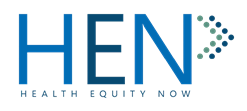May 23, 2023
Disparities in Health Care in Medicare Advantage Associated with Dual Eligibility for a Low-Income Subsidy and Disability Stratified Report

The Centers for Medicaid Services” Office of Minority Health (CMS OMH) released a report detailing the quality of care received by people enrolled in Medicare Advantage (MA).
The Disparities in Health Care in Medicare Advantage Associated with Dual Eligibility or Eligibility for a Low-Income Subsidy and Disability report presents summary information on the performance of Medicare Advantage plans on specific measures of quality of health care reported in 2021, which corresponds to care received in 2020. Specifically, this report compares the quality of care for four groups of Medicare Advantage enrollees that are defined based on the combination of two characteristics: (1) dual eligibility for Medicare and Medicaid or eligibility for a Part D Low-Income Subsidy (LIS) and (2) disability.
Overall, the report showed that people who were dually eligible for Medicare and Medicaid or eligible for the Low-Income Subsidy received worse clinical care than those who were not. The largest differences between the two groups were in the areas of Follow-up After Hospital Stay for Mental Illness (within 30 days of discharge), Avoiding Potentially Harmful Drug-Disease Interactions in Elderly Patients with Dementia, and Avoiding Potentially Harmful Drug-Disease Interactions in Elderly Patients with a History of Falls. Disparities by dual eligibility status/Low-Income Subsidy eligibility status were least common among Hispanic individuals and most common among White individuals. The report also shows more pronounced disparities in clinical care for dually eligible/Low-Income Subsidy eligible individuals in urban areas as compared to rural areas.
This report is based on an analysis of data from the Healthcare Effectiveness Data and Information Set (HEDIS). HEDIS collects information from medical records and administrative data on the technical quality of care that Medicare Advantage enrollees receive for a variety of medical issues, including diabetes, cardiovascular disease, and chronic lung disease.
Health care professionals, organizations, researchers, and hospital leaders can utilize this report along with other CMS tools and resources to help raise awareness of health disparities, develop health care interventions for Medicare Advantage enrollees who are dually eligible for Medicare and Medicaid/Low- Income Subsidy eligible and those with disabilities, and implement quality improvement efforts that improve health equity.
Help CMS to advance equity by sharing this report and our resources on prevention and health equity initiatives. Also, sign up for CMS’ listserv or visit https://go.cms.gov/omh for more information.



